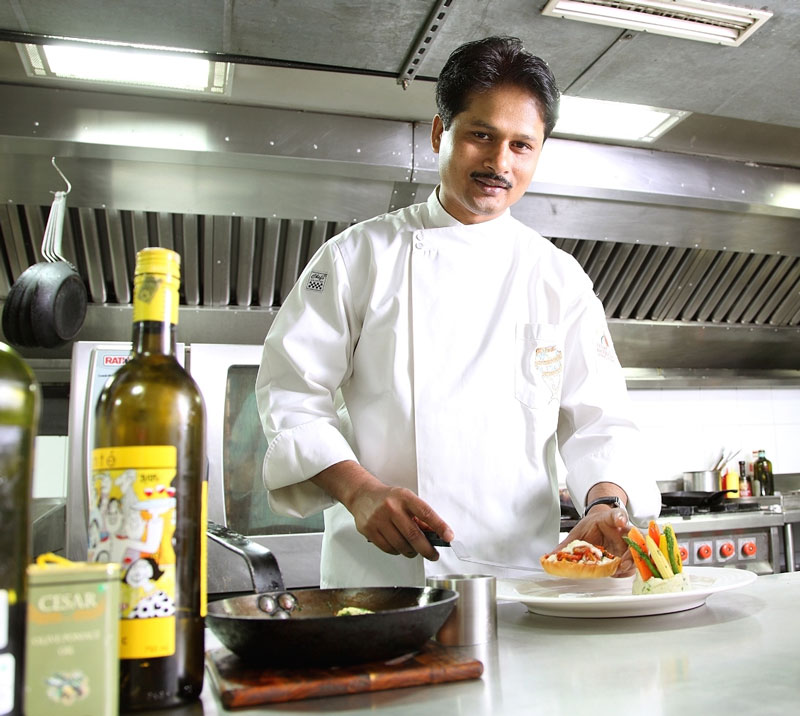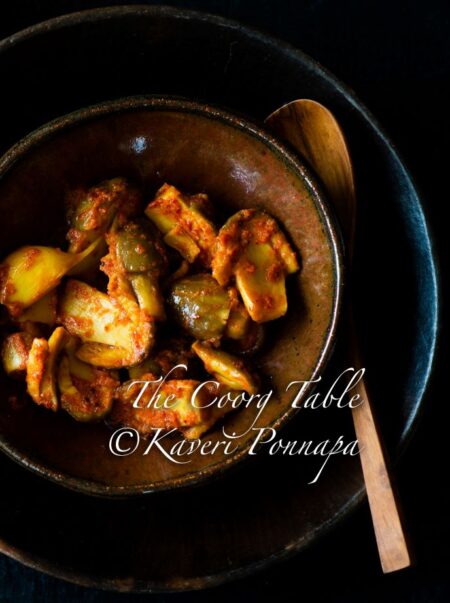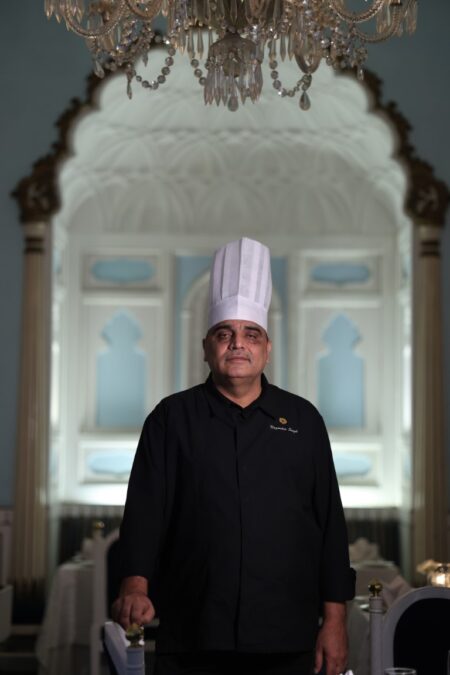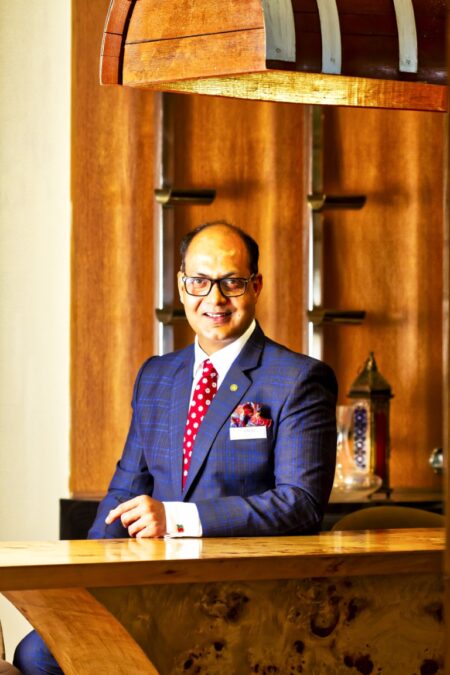Chef-Entrepreneur Abhijit Saha is the creative force behind Caperberry, Fava and most recently, Rock Salt, Indian Tapas Bar and Restaurant in Bangalore. The multiple-award winning chef draws on over two decades of experience in the industry to share some of his experiences, and speak with Kaveri Ponnapa about some of the current trends in contemporary Indian dining.
Kaveri Ponnapa- With a successful career spread across working in high-end, 5-star restaurants, engaging with diverse cuisines, and then the last decade as a modern restaurateur, what have you seen change in the way urban Indians view fine dining? Abhijit Saha: In India fine dining is increasingly becoming a rare phenomenon restricted to Five Star hotels. Even in the Five Star hotels guests, mostly patronize the All-day Dining Restaurants which are generally fine casual. Unfortunately, the concept of fine dining has been diluted in India, may be even irreversibly. Quality is not something that drives most Indian consumers when it comes to eating out. However, there is some growth in the fine casual and smart casual dining space primarily driven by the stand-alone restaurants.
KP- While you were still working at I-talia, celebrated for its outstanding Italian cuisine, you had already expressed your deep interest in Indian gastronomy, of developing and documenting the many traditions that we have in this country. Several years later we saw Saha, in Singapore, and now Rock Salt in Bangalore. Was this an inevitable progression for you? AS: Indian cuisine is something that has fascinated me because of its simplicity, and at the same time, its complexity and diversity. When I say Indian cuisine, I mean the regional cuisines of India. The size of the country, history, geography, invasions, cultural diversity, religion, traditions, beliefs, home cooking, economics, Ayurveda and spices have all contributed towards shaping this wonderful cuisine. I love Indian food, particularly home cooked food from different parts of the country. I have undertaken this journey of discovery of exploring these cuisines for myself and for the guests who patronize my restaurants.
KP- What were the challenges that you and your team faced, presenting Indian food at the Bocuse d’Or Asia-Pacific in Guangzhou, China, in 2018? What worked out, what were the areas of learning? AS: Indian cuisine worked out very well for us in Bocuse d’Or Asia Pacific 2018 and it was the first-time team India won a medal for ‘Dish on a platter’ in this prestigious international event, which is the equivalent of the Olympics of the culinary world. The competition tends to be dominated by French cuisine. My dream, of presenting Indian food to high standards on a world stage was fulfilled, and it was very well appreciated. Unfortunately, we could not make it to the finals in Lyon, as every country that participates in this competition is extremely prepared, and give it their best. I believe we needed to practice much more, and refine our dishes to achieve the perfection that is required for such a high standard of competition.
KP- There is a flurry of restaurants across the country presenting their interpretations of regional Indian cuisines —do you think this could be on the verge of becoming too trendy, missing out on depth? AS: I agree that depth and substance are missing in many restaurants across cuisines in India today. Most of them are riding on novelty and being trendy. However, there is also a lot of good work happening as Chefs are becoming more knowledgeable about regional Indian cuisines and professional cooking techniques. I believe many more Chefs today want to achieve excellence, but there are several constraints that are preventing them from doing so.
KP- In this context, incorporating highly region-specific ingredients in novel ways has become very popular. What do you think is the most important thing for young chefs, who are looking at putting traditional foods into a modern context, to develop? AS: In-depth knowledge of the cuisine, skill and understanding of flavours are essential for an innovative or modern approach. Innovation for the sake of being innovative without knowledge can be dangerous and lead to disastrous results.
KP- You travel a lot across the world, frequently in pursuit of good food and wine. What do you see in casual dining trends elsewhere that is different from India? AS: Yes, I love to travel and discover food in different parts of the world. Food is one the best means of experiencing culture and making friends. There are good and not so good restaurants everywhere in the world. In most countries casual would mean less expensive but not poor quality. Whereas in India casual can definitely mean the latter.
KP- Indian cuisine —both traditional and modern —in all its many versions has established its presence internationally. Do you think it will ever make waves like Spanish, Scandinavian —or more recently, Mexican cuisine? AS: It will depend on the seriousness of Chefs and restaurateurs to achieve such a status for Indian cuisine. Despite their growing popularity across the world, even today the proportion of bad and good Indian restaurants is highly skewed towards the former. This stems from ignorance, lack of professionalism and depth of research, and also pride in showcasing Indian cuisine the way it deserves to be presented. The day we can overcome these limitations, I have no doubt that both India and its cuisine will become a phenomenon.
KP- You work across a range of cooking techniques and traditions in your restaurants —what is the one thread that runs through them all? AS: It is difficult to mention just one. Quality, ethics and hospitality.
KP- How would you describe your own style of cooking? AS: A style that brings joy to both my restaurant guests and me. I try to achieve this through an approach that is a mix of innovation, and a commitment to my profession.
By: Kaveri Ponnapa
This article was published in Sommelier India Magazine, Volume 15: Issue 1, January-March 2019 www.sommelierindia.com




